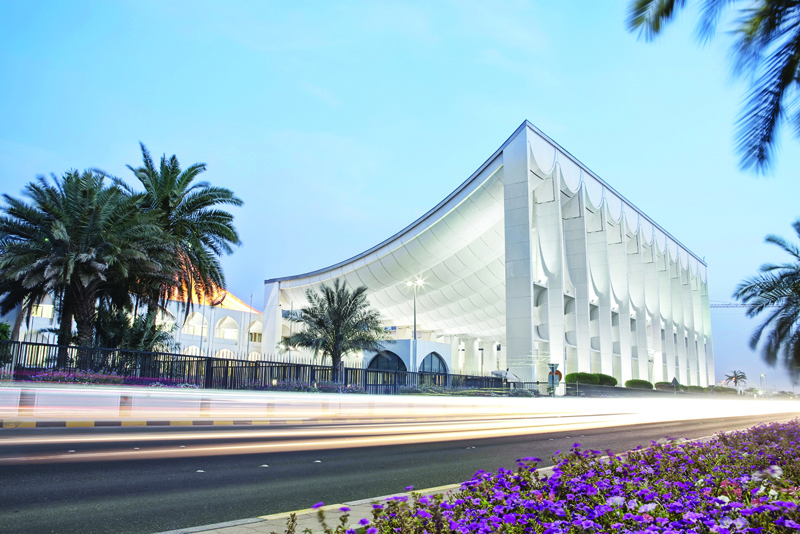 The National Assembly
The National AssemblyBy B Izzak
KUWAIT: The National Assembly's budgets committee yesterday pressed government agencies, including Kuwait Petroleum Corp, to transfer to government coffers billions of dinars of profits they had "illegally" retained. Head of the committee MP Bader Al-Mulla said the panel meeting was supposed to be attended by the prime minister and the ministers of finance and oil, but they apologized at the last minute and sent senior officials instead.
Mulla said the committee found that only 21 percent of profits posted by several state agencies had been transferred to state coffers, while 79 percent of the multibillion-dinar sums had been retained by the agencies in violation of the law. He said the main culprit is KPC, which has transferred just 19 percent of its profits, and although a previous agreement had been made to pay the sums in instalments, KPC has failed to fulfil its promises.
Mulla said the committee found that KPC alone has failed to transfer close to KD 6 billion since 2014. He added that other agencies have agreed to transfer their profits to the government before the end of the current fiscal year. The committee called the meeting to explore ways to provide funds to the cash-strapped general reserve fund, which is responsible for all government expenditures.
The government had warned that the fund is almost empty because of the sharp drop in oil prices and asked the Assembly to approve a bill that allows the government to withdraw up to KD 5 billion annually from the future generations fund, the country's sovereign wealth fund. MPs have vowed to reject the bill.
 Khalifa Hamada
Khalifa HamadaMeanwhile, Finance Minister Khalifa Hamada said yesterday that the relative and temporary rise in oil revenues is not sufficient to cover budget commitments, 71 percent of which are for wages and subsidies. Accordingly, the government will continue its efforts to explore various options to provide enough cash flows to the general reserve fund, the minister said. Hamada said the breakeven price for oil that will balance revenues and expenditures and make the budget deficit zero is $90 a barrel. Brent crude was trading at around $68 a barrel yesterday.
"We must address the scarcity of financial resources and the depletion of liquidity in the treasury (the general reserve fund) as soon as possible, and they must be accompanied by radical economic and financial reforms that contribute to reducing expenditures and increasing non-oil revenues," Hamada said, adding he had full confidence in the Assembly's cooperation.
"Issuing bonds and other solutions are not reform solutions, but rather temporary measures that must be taken to fulfill the immediate obligations represented by salaries and subsidies, which constitute more than 71 percent of the state's total spending," Hamada said.










